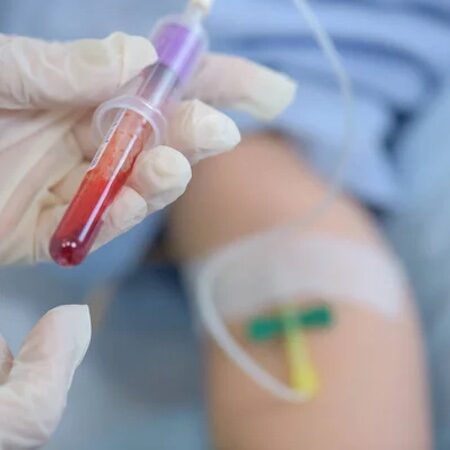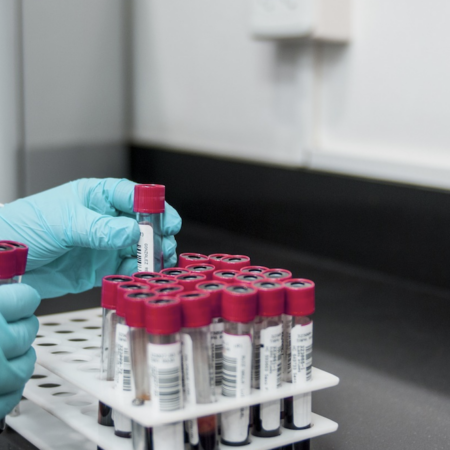Blood Testing in Cape Girardeau MO
At Dawn of Life Aesthetics & Wellness Med Spa in Cape Girardeau MO, we offer Blood testing, a valuable and versatile diagnostic tool that provides critical insights into an individual’s health, helps detect and manage medical conditions, and supports informed decision-making in healthcare.


What is Blood Testing?
Blood testing is a diagnostic tool used to assess various aspects of an individual’s health by analyzing a sample of blood. Blood tests can provide valuable information about how well organs are functioning, detect potential health issues, and monitor the effectiveness of treatments.
How It Works
- Blood Collection:
- Venipuncture: A healthcare provider typically draws blood from a vein, usually in the arm, using a needle. This method is common for most blood tests.
- Fingerstick: For some tests, such as glucose monitoring or cholesterol screening, a small sample of blood is obtained by pricking the fingertip.
- Capillary Blood Collection: In certain cases, blood may be collected from a small puncture in the heel (especially in infants) or other locations.
- Sample Handling:
- After collection, the blood sample is placed in a sterile container, sometimes mixed with anticoagulants to prevent clotting, depending on the type of test required.
- Laboratory Analysis:
- The blood sample is sent to a laboratory, where it is processed and analyzed using various techniques, such as automated analyzers, chemical assays, and microscopic examination.
- Result Interpretation:
- Results are reviewed by laboratory professionals and interpreted by healthcare providers. They are used to diagnose conditions, monitor health, and guide treatment decisions.
Types of Blood Tests
- Complete Blood Count (CBC): Measures different components of blood, including red blood cells, white blood cells, and platelets, to assess overall health and detect disorders such as anemia or infections.
- Basic Metabolic Panel (BMP): Evaluates glucose, calcium, and electrolytes (sodium, potassium, chloride, bicarbonate) to assess kidney function, blood sugar levels, and electrolyte balance.
- Comprehensive Metabolic Panel (CMP): Includes all tests in the BMP, plus additional tests for liver function and protein levels, providing a broader picture of metabolic health.
- Lipid Panel: Measures levels of cholesterol (total, LDL, HDL) and triglycerides to assess cardiovascular health and risk for heart disease.
- Thyroid Function Tests: Assess the levels of thyroid hormones (TSH, T3, T4) to evaluate thyroid gland function and diagnose thyroid disorders.
- Hemoglobin A1c (HbA1c): Measures average blood glucose levels over the past 2-3 months to monitor diabetes management and assess long-term glucose control.
- Coagulation Tests: Evaluates blood clotting ability (e.g., PT, aPTT, INR) to assess bleeding and clotting disorders.
- Blood Cultures: Detects the presence of bacteria or fungi in the blood, often used to diagnose infections.
Benefits of Blood Testing
- Early Detection of Health Issues: Blood tests can detect diseases and conditions early, often before symptoms appear, allowing for timely intervention and treatment.
- Monitoring Chronic Conditions: Regular blood tests help monitor chronic conditions such as diabetes, kidney disease, and cardiovascular disorders, ensuring that treatment plans remain effective.
- Assessing Organ Function: Blood tests provide insight into the functioning of vital organs such as the liver, kidneys, and heart, helping to identify potential problems and guide treatment.
- Guiding Treatment Decisions: Results from blood tests can inform healthcare providers about the effectiveness of treatments, medication dosages, and the need for adjustments.
- Health Screening: Blood tests can be used for routine health screenings, such as cholesterol levels and glucose levels, to evaluate overall health and prevent future health issues.
- Personalized Health Insights: Advanced blood tests can provide detailed information on nutritional deficiencies, hormonal imbalances, and genetic markers, contributing to personalized healthcare strategies.
- Cost-Effective and Non-Invasive: Blood tests are relatively simple and cost-effective diagnostic tools compared to more invasive procedures.
Considerations
- Preparation: Some blood tests require fasting or specific preparations. Following the instructions provided by your healthcare provider is important for accurate results.
- Potential for False Results: While blood tests are generally accurate, results can sometimes be affected by factors such as dehydration, medications, or other health conditions. False positives or false negatives can occur.
- Follow-Up: Abnormal results often require follow-up testing or evaluation to determine the underlying cause and appropriate treatment.
- Interpretation: Blood test results should be interpreted by a healthcare professional who can consider the full clinical context and recommend further action if needed.
Blood testing is a valuable and versatile diagnostic tool that provides critical insights into an individual’s health, helps detect and manage medical conditions, and supports informed decision-making in healthcare.
Book your consultation today
Other Services we offer
Aesthetics Services
Facials
Treatment Based Facials
Microneedling
Laser Hair Removal
Waxing
Glo2Facial
Lashes & Brows
Weight Loss Services
GLP-1
Medical Weight Loss
Semaglutide
Tirzepatide
Body Contouring
Functional Medicine Services
Blood Testing
Gut Testing
Food Sensitivity Testing
Hormone Testing
Lymphatic Therapy
Pelvic Floor Therapy
Red Light Therapy
